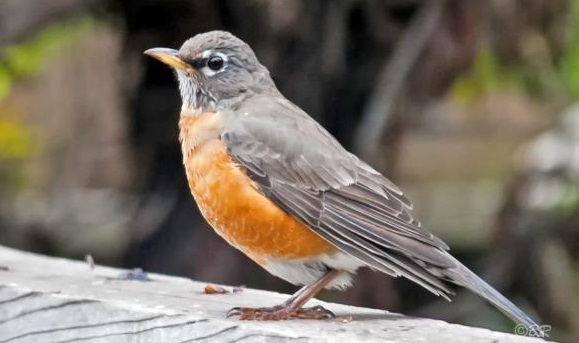When the weather turns warmer and the grass grows greener, it’s easier to understand the promise of new life and renewed hope that Christians proclaim as “Easter people.”
As we celebrate the Easter season, the 50 days after the resurrection, we see reminders all around us. So be sure to keep an eye out on your next spring stroll.

Birds
The robin, a very common bird in the U.S., has a red breast and a legend to explain it. Seems that once a gray robin flew to Christ’s crown of thorns to draw out a thorn, and when it did, a drop of Christ’s blood fell on its breast, leaving a stain forevermore.
Bees
It takes lots of buzzing bees to spread the pollen and make flowers grow. The honey these creatures create is a biblical symbol of God’s favor. The Torah agrees, for it describes God’s promised land again and again as “flowing with milk and honey.”
Wesley’s Words
I believe in my heart that faith in Jesus Christ can and will lead us beyond an exclusive concern for the well-being of other human beings, to a broader concern for the well-being of the birds in our backyards, the fish in our rivers, and every living creature on the face of the earth. —John Wesley
Flowers
Long considered a symbol of hope and new life, the daffodil is one of the blooms most often connected to the Resurrection. Tradition says that giving a gift of daffodils will ensure happiness for the receiver—but always give a bunch: a single bloom signals doom.
The flowering shrub known as the forsythia is what I call the Easter tree, because when its spidery branches are moving with the wind, they seem to be arms waving in praise of the season. According to tradition, forsythia means anticipation—an appropriate companion word for Resurrection.
It is said the dogwood tree used to grow straight and tall, but after it was used as a crucifix for Christ, God made it short and twisted with a thin trunk so it could never be used as a cross again. The dogwood bloom has four parts, each with a rusty red color on the end and a small hole, a reminder of where the nails were driven into the cross. The center stamens look like the crown of thorns.
Faith
The tradition that developed around these spring symbols helped explain the concept that God in the flesh took on death and came back to tell us there is life on the other side. What fantastic news!
This spring, be a witness to the good news that Christ is risen:
The four branches of dogwood blossoms remind people of the Cross. It is believed Christ’s crucifix was made from a dogwood. Photo by Cindy Caldwell.
- Learn about the symbols and notice them when you are outdoors this season. Even better: plant some dogwoods and flowers in your yard and on the grounds of your church.
- Fashion a cross from cuttings of spring flowers. Invite others to help. Set it out in front of your church, or even your house, for all to see.
- Make (don’t buy) a gift for someone who needs to be reminded of the love of God made known in the Risen Christ.
- Play. Not a video game or a phone app. Physically play. Move. Dance. Interestingly, the Irish jig and tap dancing have their roots in an early Saxon tradition called the “hop-egg.” The purpose was to step among a dozen eggs as if walking the Stations of the Cross. This egg dance is likely the distant relative of hopscotch.
The Council at Nicaea in 325 AD gave the Church a revised creed. The last line reads:” We look for the resurrection of the dead, and the life of the world to come.”
As Easter people, we don’t have to look further than spring for an exclamation point to that affirmation.
Reference – Rev. Mark Price
